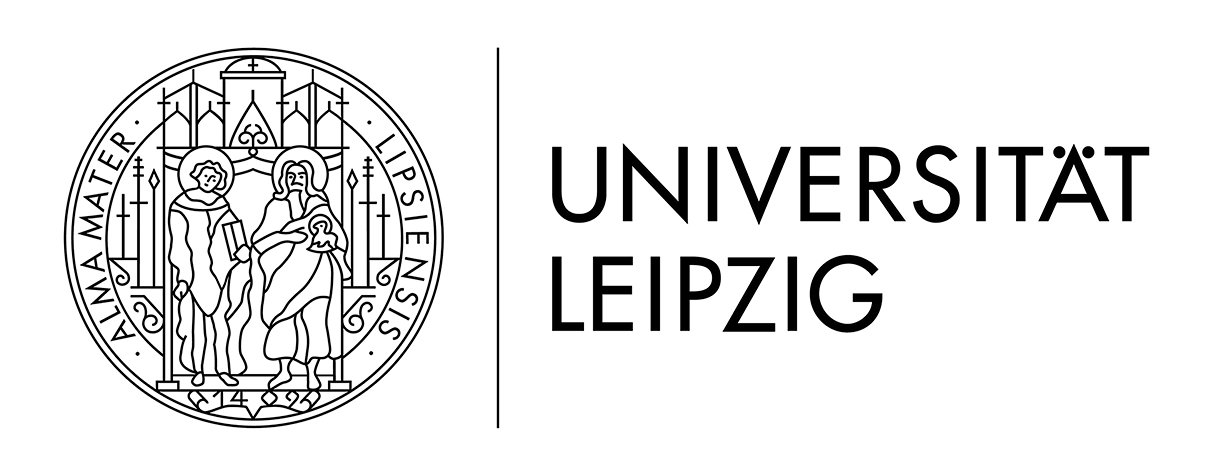Programme
Below you find the daily schedule for the conference.
Day 1
10:00
Registration
Session 1 - Math-Graphs
11:00
Welcome
11:05
Talk 1: Jens Meiler (Leipzig University)
How artificial intelligence is reshaping protein structure prediction and therapeutic design
11:25
Talk 2: Wassili Dimitriew (FSU Jena)
Man and Machine (and Fungus): Genome- scale metabolic reconstruction leveraged by large language models
11:45
Talk 3: Varada Khot (FSU Jena)
From Jacks-of-all-trades to masters of some: phylogenomic insights into microbial specialization using gene-tree reconciliation
12:05
Talk 4: Heitor Baldo (Leipzig University)
Algorithms for Approximating the Spectral Density of Multilayer Directed Graphs and Hypergraphs
12:25
Self-organized Lunch
recommendations here
Session 2 - System Biology
13:40
Talk 5: Adrian Friebel (Leipzig University)
Spatially Resolved Single-Cell Analysis of the Tumor Microenvironment and TGF- Signaling Using Multiplex Imaging and Deep Learning
14:00
Talk 6: Marie Steinacker (Leipzig University)
Predicting chemotherapy-induced thrombotoxicity by NARX neural networks and knowledge-driven transfer learning
14:20
Talk 7: Maximilian Joas (Leipzig University)
Zero-Shot, Big-Shot, Active-Shot - How to estimate cell confluence, lazily
14:40
Talk 8: Thomas Schmutzer (Halle University)
The long and the short of it: The wild barley pangenome creates an inventory of structural variations
15:00
Coffee Break
Session 3 - DNA
15:30
Talk 9: Pierre Joubert (TU Dresden)
Understanding how genome stability is encoded at the sequence level using the DNA language model GROVER
15:50
Talk 10: Jakub Zastapilo (TU Dresden)
Region-Specific Alterations in 3D Genome Architecture Following X-Ray Irradiation
16:10
Talk 11: Maria Schreiber (FSU Jena)
Sweet Synteny - Unraveling Microsynteny Patterns
16:30
Invited Talk: Michael Hiller (Frankfurt University)
TOGA2 improves speed and accuracy of
comparative gene annotation
(further information)
Postersession + Dinner
17:30
Dinner
18:00
Session A
19:00
Session B
20:00
Open Discussions
End of Day (22:00)
Day 2
Session 4 - Pixels-Graphs-Dots
09:00
Talk 12: Andreas Kröpelin (University Hospital Jena)
Connecting the dots: A probabilistic model for biomolecular latent space trajectories
09:20
Talk 13: Tieu-Long Phan (Leipzig University)
KGG: A Knowledge-Guided Graph Self-Supervised Framework for Advancing Molecular Property Predictions
09:40
Talk 14: Stefan Höhme (Leipzig University)
Machine-learning superpixels for 3D multiscale modelling of liver diseases
10:00
Coffee Break
Session 5 - Structural / Molecules
10:30
Talk 15: Inna Lavrik (OVGU Magdeburg)
Dissecting apoptosis regulation via pharmacological targeting
10:50
Talk 16: Luisa Kärmer (Vanderbilt University)
AI-Accelerated Quantum Chemistry for Drug Design
11:10
Talk 17: Alena van Bömmel (FLI Jena)
Identification of clinically relevant epigenomic events in pediatric acute lymphoblastic leukemia
11:30
Talk 18: Marija Sorokina (Leipzig University)
Development of peptide binders with ML- & physics-based methods for GPCRs
11:50
Talk 19: Tushar Patel (FLI Jena)
Gestational Age prediction using CpG clusters in regularized regression
12:10
Self-organized Lunch
recommendations here
Session 6 - Omics
13:20
Talk 20: Michael Rade (Frauenhofer IZI Leipzig)
Development of a time series single-cell transcriptomic CAR T-cell atlas to explore the dynamics of CAR T-cell therapy
13:40
Talk 21: Dmitrii Severinov (TU Dresden)
From Damage to Healing: Following the Regeneration Process in Zebrafish with Single-Cell Multiomics and Gene Regulatory Networks
14:00
Talk 22: Adnan Jasarevic (TU Dresden)
Modelling strategies to derive physico-chemical properties of the DNA double helix from DNA sequence data
Session 7 - Viral
14:20
Invited Talk: Denise Kühnert (RKI)
Phylogenomics meets Machine Learning at ZKI-PH: Evolution and transmission of infectious pathogens
(further information)
15:00
Coffee Break
15:30
Talk 23: Rainer König (FSU Jena)
Integrative Identification of Host Dependency Factors in Key Viral Pathogens Using Machine Learning
15:50
Talk 24: Tom Eulenfeld (FSU Jena)
AnchoRNA - Guiding the alignment of full viral genomes
16:10
Talk 25: Eva Aßmann (RKI)
A spatiotemporal deep learning appraoch for SARS-CoV-2 wastewater forecasts


